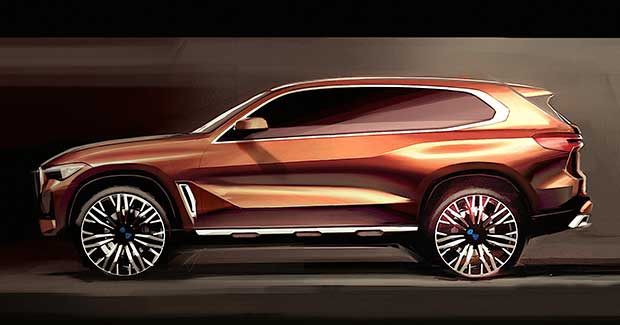
While almost entirely known for their incredible range of flashy cars, BMW also has a range of SUVs that get a lot of positive attention. Fans of the BMW x5 SUV might be happy to know, then, that a new release of an FCEV version is coming in 2022. This release will not only be an SUV, but a hydrogen fuel-cell powered SUV. The SUV will be released in 2022 as part of a limited run series. Anyone wishing to pick up a hydrogen fuel-cell powered SUV might need to take a quick look at the new BMW model arriving in the near future.
Now, I’ve talked about some of the BMW FCEV prototypes before including the BMW Series 5 GT Hydrogen, the BMW i8 Hydrogen plus even the gasoline-hydrogen powered BMW Hydrogen 7.
The new BMW x5 SUV FCEV was announced at an annual shareholders meeting when CEO Oliver Zipse was quick to mention the development of the SUV. This will be produced next year, with BMW one of the many companies looking to invest heavily in hydrogen fuel-cell technology. As we look to tighten emissions as a whole across the auto industry, the introduction of a proven SUV from a company like BMW is only likely to boost consumer confidence in hydrogen fuel-cell tech.
BMW is one of the few companies within the auto industry who is still heavily focused on the concept of turning to hydrogen fuel-cells as a mean of mass-powering our vehicles. While other companies are focused on the use of battery-electric vehicles, there is a strong belief in the use of hydrogen fuel-cell technology within BMW.
The main benefit of hydrogen fuel-cell is that it can provide emissions which are harmless to humans or environment. At the same time, they also provide a greater distance range than the use of a battery-electric vehicle.
Why is BMW fighting for hydrogen fuel-cell vehicles?
For one, it is seen by some as the more reasonable option than battery-electric vehicles. The massive costs in manufacturing, as well as the lack of efficiency, puts off a lot of people. However, the challenge in mass adoption of hydrogen fuel-cell comes from a lack of infrastructure across the board. Very few countries have invested heavily into developing fuelling and charging stations for hydrogen fuel-cell vehicles. BMW hopes that by being a big name, their prestige can help to change this.
Indeed, various other vehicle manufacturers are moving into the market to try and move away from the development of battery-electric vehicles. One popular manufacturer who sees a future in hydrogen fuel-cell tech is Toyota, with the development of their Mirai hydrogen fuel-cell edition proving to be very successful. Honda also sells the Clarity and Hyundai sells the Nexo.
There is hope, then, that BMW will not be a lone voice in a market that needs to provide more options for people to pick from as time goes on. With the race to move away from having only one option to beat our current problems, BMW is offering an interesting solution that might just tip the scale in favor of alternative fuel vehicles particularly those run by hydrogen fuel.
Citation